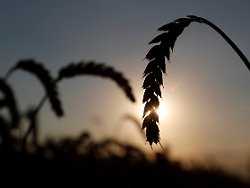Consequences of the sanctions at Lanz
Fratzscher warns of famine
By Marko Schlichting
03/16/2022, 03:55 am
Gasoline prices of over 2.20 euros per liter are causing problems for German drivers. As a result of the Russian war in Ukraine, DIW boss Marcel Fratzscher sees completely different problems for the world population. With Markus Lanz he paints a bleak picture of the situation.
The worldwide sanctions against Russia because of the Russian invasion of Ukraine are having an effect. Now there are initial answers from the government of Russian President Vladimir Putin. On Tuesday, US President Biden and US Secretary of State Blinken were banned from entering the country. In Germany, too, people are feeling the first effects of the sanctions. One consequence: petrol is becoming more and more expensive, and there is no end in sight to the price increases. The guests talked about further episodes on Tuesday evening in the ZDF program Markus Lanz.
“We don’t just have an energy shortage”
The head of the German Institute for Economic Research (DIW), Marcel Fratzscher, not only fears a shortage of fossil fuels from Russia. The war in Ukraine will also lead to other problems. According to Fratzscher, 28 percent of global wheat deliveries come from Russia and Ukraine. Russia also produces about 30 percent of the world’s potash fertilizer needs and is also an important supplier of rare earths such as palladium.
Stockbrokers have been calling palladium “The New Gold” for a number of years. It is used, for example, in catalytic converters in petrol cars. The shiny white precious metal is also part of dentures, to name just two examples. In addition, it is used to speculate on the stock exchanges, because it happens again and again that the price of the precious metal exceeds that of gold.
“For me, however, from a global perspective, the most important concern is food and fertilizer,” says Fratzscher. Although the people in Ukraine and Russia bear the highest costs from the sanctions, the people in the developing countries also have to suffer, explains the economist. Countries like Egypt have to import almost all of their wheat, and bread is a staple there. If the price of bread there rose by just 30 percent, many people would end up in poverty and would no longer be able to feed their families. “My concern is that we will have at least 200 million people worldwide slipping into absolute poverty because food prices are skyrocketing,” analyzes Fratzscher.
Another problem is energy supplies from countries like Qatar to Germany. This would push the countries in the third world aside. Fratzscher’s appeal: “We mustn’t just look at Germany. Energy costs are high here too. But we have a strong welfare state and we’ve created a certain level of prosperity. Other countries don’t have that. A tragedy is looming which we will have to face before the end of this year.”
Söder for longer running times of nuclear power plants
Another guest on the show: Bavaria’s Prime Minister Markus Söder. Like many politicians, he is in favor of further tightening of sanctions against Russia, but is against stopping imports of fossil raw materials such as oil and gas. It will be a long time before Germany has made itself independent of Russian supplies by expanding renewable energies. That is why the CSU politician is calling for the nuclear power plants that are still connected to the grid to be allowed to run for at least three years longer than previously planned, i.e. until the end of 2025. “The expansion of wind energy is progressing slowly throughout Germany. That’s why you need this bridging technology,” said the Bavarian Prime Minister.
The economist Fratzscher has a completely different opinion. “Nuclear energy is much, much more expensive than renewable energy,” he says. “And besides, we still have the problem of not knowing what to do with the nuclear waste. Abandoning nuclear energy is the right thing to do.” One solution for Fratzscher is the reduction in bureaucracy already promised by the traffic light coalition. “We urgently need to do something.”
In the end, Söder will not be able to decide whether the service life of the last three nuclear power plants will actually be extended. That’s up to the federal government.
